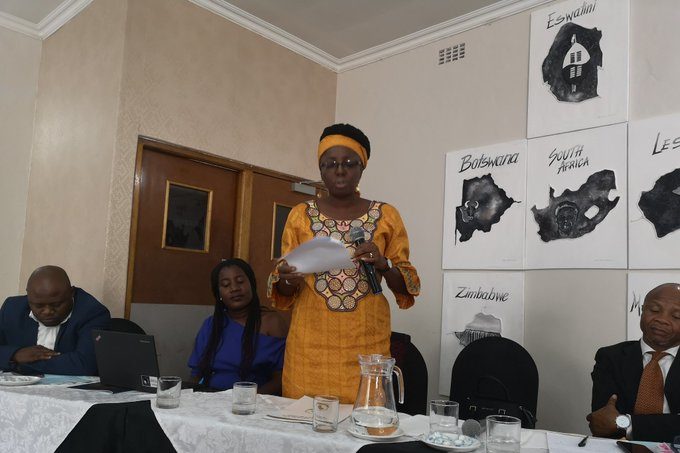In a statement, the ICJ, along with various other local and international civil society organizations and affected communities demand redress for forced evictions following visit of African Commission member and ICJ Commissioner Jamesina King.
On 27-28 August 2019 members of local communities who have endured or are at imminent risk of forced evictions in Eswatini met in Manzini to continue their advocacy efforts against forced and mass evictions. These stakeholders called on the responsible government authorities in Eswatini to take immediate measures to address the practice of forced evictions in violation of the right to housing.
The Eswatini land governance system fails Swazi people. Most land is held by the King in “trust”, other Swazi people live on title-deed land without formal recognition. Swazi people do not enjoy security of tenure and are vulnerable to forced evictions. Under international human rights law, forced evictions may only happen as a last resort, in terms of a court order, once all other feasible alternatives have been exhausted and appropriate procedural protections are in place.
Some participants in the workshop had previously submitted a report that documents forced evictions in Eswatini and engaged with the African Commission on Human and Peoples’ Rights (ACHPR) at its 63rd Ordinary Session in Banjul, Gambia in October 2018. As a follow-up, the community representatives invited ACHPR Commissioner Jamesina King to participate in their meeting in Manzini in August 2019.
“It is very obvious that the laws of Eswatini have to evolve to provide these communities with legal protection and to put an end to forced evictions,” Commissioner King told the communities. King also called for the government to declare a moratorium on forced evictions until laws have been enacted which provide sufficient protection for the right to adequate housing.
The meeting, which was facilitated and coordinated in partnership with the Foundation for Socio-Economic Justice, the International Commission of Jurists, Amnesty International and the Southern African Litigation Centre, was also attended by local civil society organizations, religious groups and concerned individuals. The participants also had the opportunity of engaging with the Eswatini Commission on Human Rights and Public Administration.
Participants included representatives from communities recently affected by evictions from affected communities, from Nokwane and the Malkerns. Representatives from communities facing imminent eviction in Mbondzela, Gege in the Shiselweni region, Vuvulane, Madonsa and Sigombeni also participated.
Participants demanded the following in conclusion of the engagement:
- A public, time bound commitment to a moratorium on forced and mass evictions.
- The enactment of legislation that explicitly prohibits forced and mass evictions in all circumstances and sets out safeguards that must be strictly followed before any eviction is carried out.
- The provision of reparations for those families who have already been subjected to forced evictions in the absence of sufficient legal protections.
“The ICJ sees the Minister of Justice Pholile Dlamini-Shakantu’s willingness to discuss forced evictions with Commissioner King as a welcome indication of the government’s openness to constructive input by the African Commission. It is hoped that the government takes heed of struggles of community members, and acts swiftly to put an end to forced evictions in Eswatini”, said Arnold Tsunga, ICJ’s Africa Director.
Find the full statement, which is endorsed by the Foundation for Socio-Economic Justice, the International Commission of Jurists, Amnesty International and the Southern African Litigation Centre here;
Eswatini-Swazi Government to End Forced Evictions-News-Webstory-2019-ENG
For more information contact:
Tim Fish Hodgson timothy.hodgson(a)icj.org +27 82 871 9905




